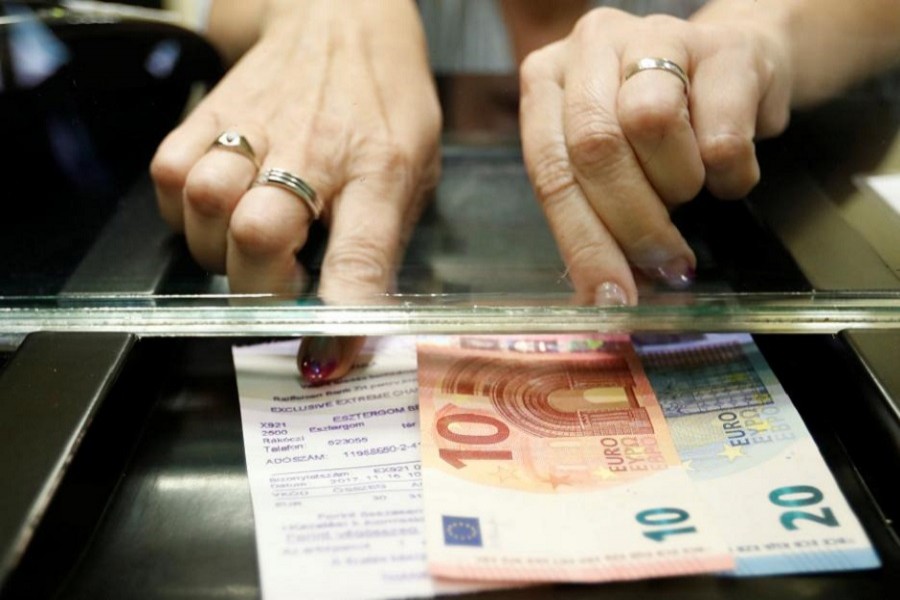The euro neared multi-year peaks on Friday as talk of policy tightening in Europe and expectations that inflation is set to gear higher drove up borrowing costs globally, a move that sparked a sell-off in Asian equities.
Yields on 10-year US Treasuries jumped to a near four-year peak, markedly steepening the curve and squeezing out investors who had feverishly bet on a tighter spread between longer-dated and short-dated yields.
Global central banks have recently struck a more hawkish tone with impressive economic data and buoyant oil prices driving up long-term inflation expectations.
The European Central Bank, for one, is widely expected to end its asset-purchase program as early as September. That has pushed five-year German Bund yields above zero for the first time since 2015. UK gilt prices also cheapened significantly.
Investors reacted by bidding the euro broadly higher from a 2-1/2 year top on the yen and a three-year peak on the dollar at $1.2509.
Yet rising US yields have failed to prop up the dollar index, which paused around a three-year trough.
“The trade weighted dollar continued to weaken very broadly in 2018 with the two key pillars being growth strengthening elsewhere in the world, supporting emerging market forex... and central bank divergence narrowing, supporting euro, yen and British pound,” JP Morgan analyst Charles Perrin wrote in a note to clients.
“The currency was also dragged by US politics.”
The United States is witnessing deep partisan political divisions and intra-party squabbles with lawmakers unable to find common ground on most issues. The federal government shut down last month for three days when Republicans and Democrats failed to strike a deal to fund public operations.
The dollar is not far off a 4-1/2 month low against the yen.
The Bank of Japan did its best to stem the rise in borrowing costs, stepping into the market on Friday with a promise to buy as many bonds as it would take to keep yields low.
Investors now await the US nonfarm payrolls report for January, for clues on the strength of the labor market.
Nonfarm payrolls probably rose by 180,000 jobs in January after increasing 148,000 in December, according to a Reuters survey of economists. The unemployment rate is forecast to be unchanged at a 17-year low of 4.1 per cent.
Bitcoin, the world’s biggest cryptocurrency, continued to tumble after hitting a record high $19,666 in December on the Bitstamp exchange. It was last down 3.4 per cent at a more than two-month trough of $8,690.
The digital coin had skidded to its lowest since November, as a Facebook ban on cryptocurrency adverts and a growing regulatory backlash against the nascent market frightened investors.
Unease in equities
Asian shares stumbled, with Korean and Japanese benchmark indices falling more than 1.0 per cent.
MSCI’s broadest index of Asia-Pacific shares outside Japan slipped 0.3 per cent and away from a record high.
Wall Street saw a mixed closing on Thursday with the Dow up 0.1 per cent, the S&P 500 marginally off and Nasdaq down 0.35 per cent.
High-profile tech companies reported after the closing bell on Wall Street, with Amazon.com surging 6.0 per cent as it reported the largest profit in its history. Alphabet was down nearly 3.0 per cent in extended trade after its earnings missed estimates and Apple bounced more than 3.0 per cent.
In commodities, gold hovered near a six-month peak at $1,348.9 an ounce.
Oil rose after a survey showed strong compliance with output cuts by OPEC and others including Russia, offsetting concerns about surging US production.
US crude rose 33 cents to $66.13 per barrel and Brent edged 18 cents higher to $69.83.


